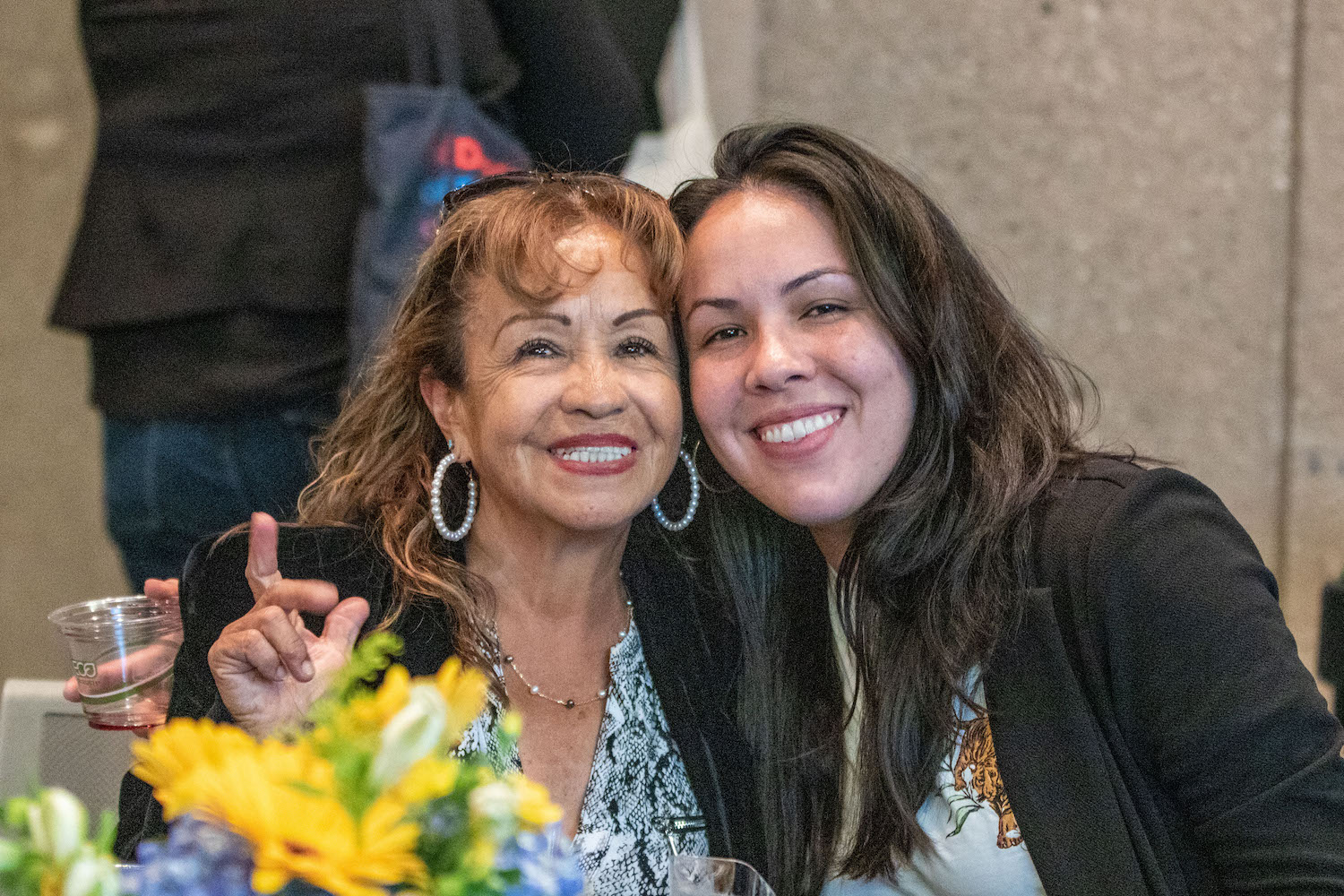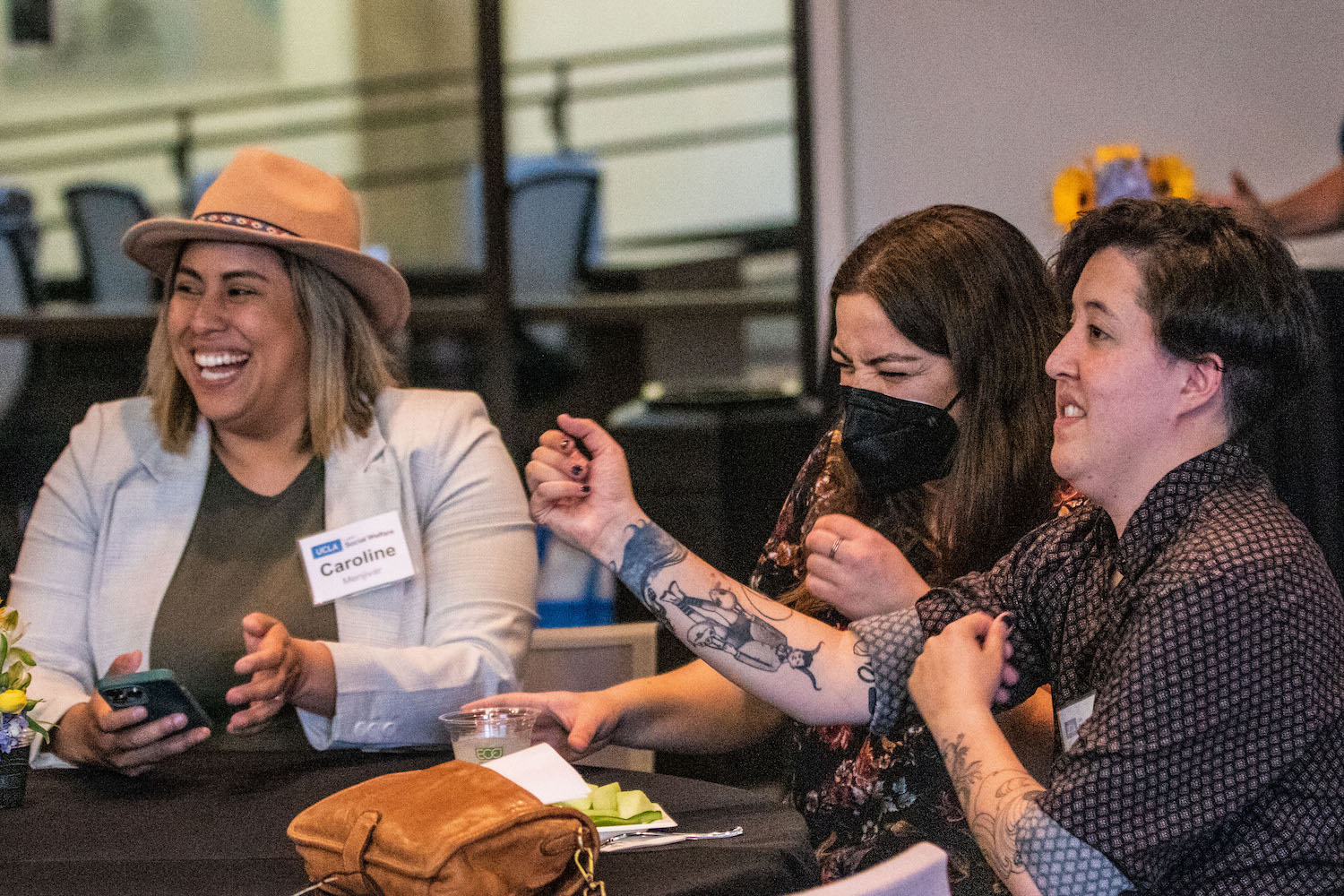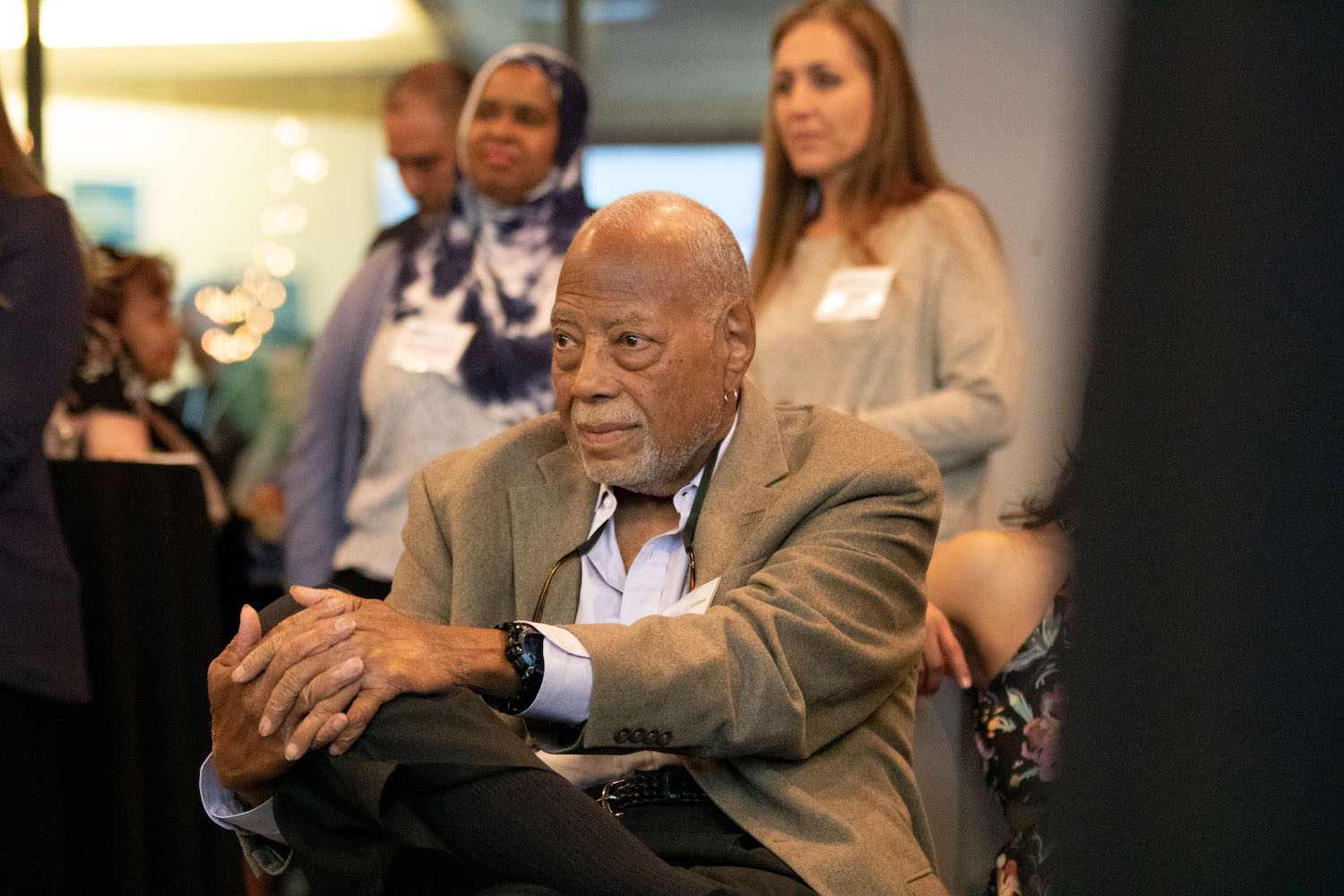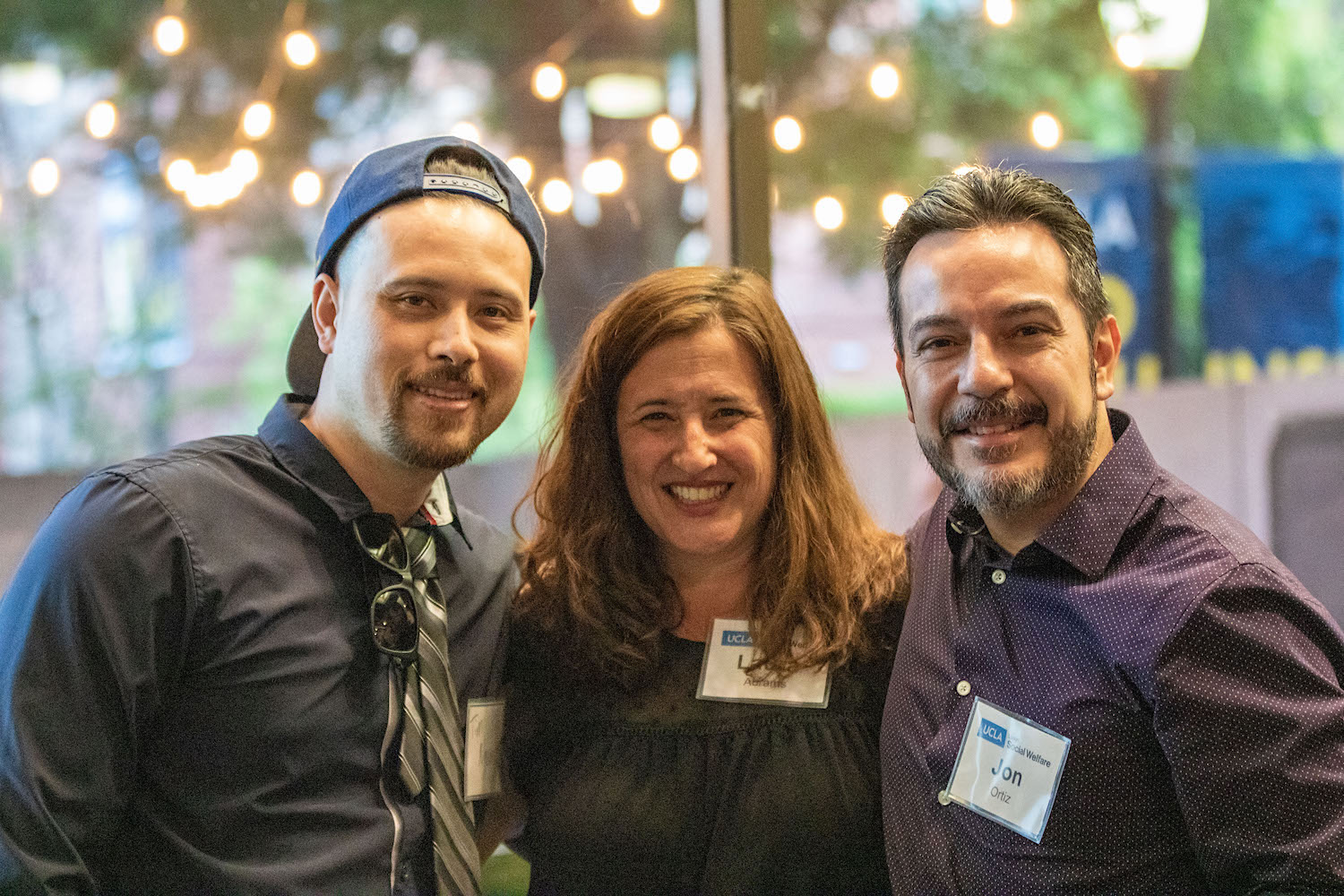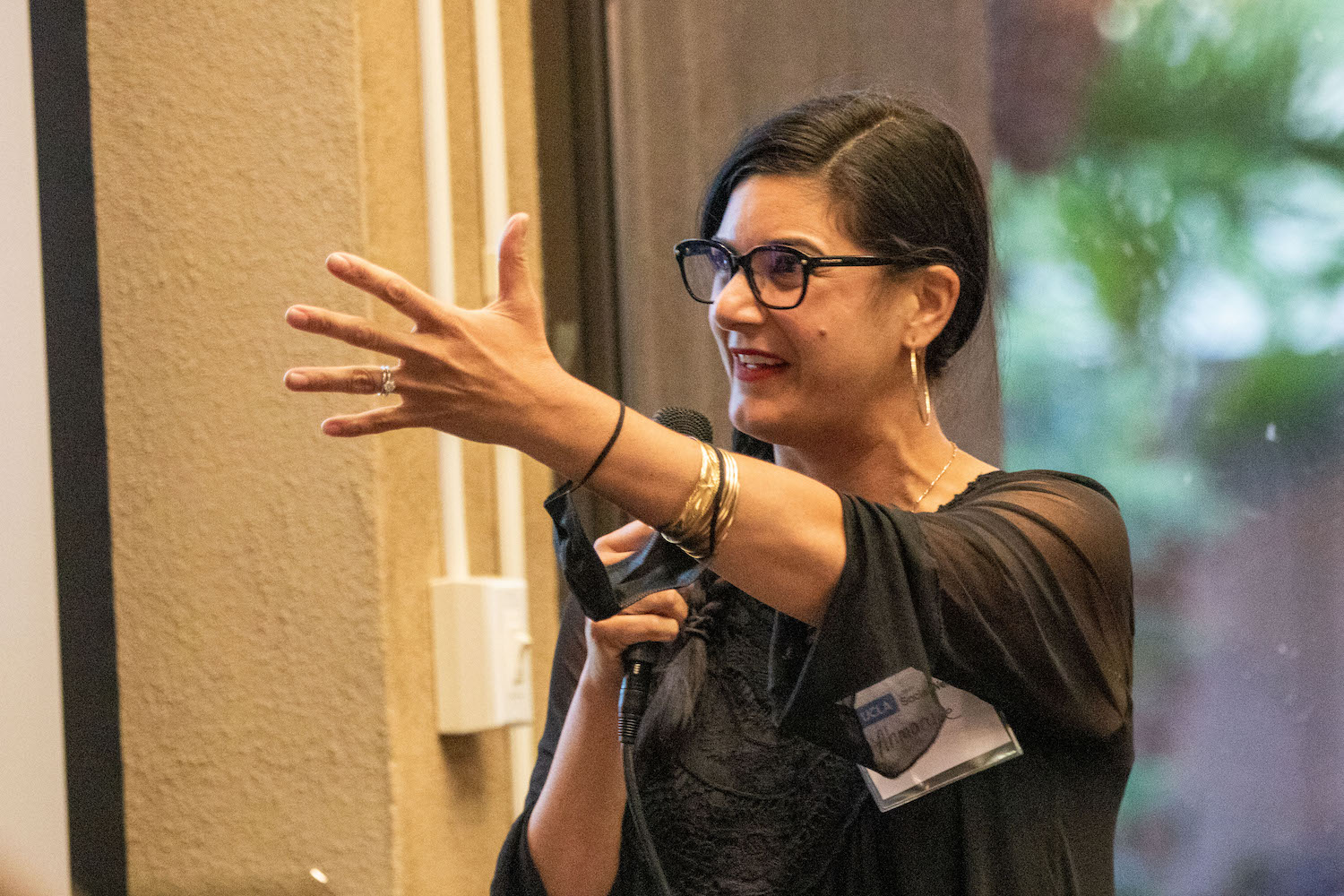‘A Book Can Save a Life:’ UCLA Luskin Alumna Starts Library at L.A. County Jail Ahmanise Sanati is named Social Welfare Alumna of the Year
By Madeline Adamo
Social worker Ahmanise Sanati was stuck. Five weeks into her therapy sessions with a man incarcerated at the Los Angeles County Twin Towers Correctional Facility, and he still wouldn’t say a word.
Then Sanati started talking with him about the popular philosophy book “Zen and the Art of Motorcycle Maintenance” and he finally opened.
“Asking them what kind of books they like sparks their interest, because it might be one of the only interactions they have with another person who has taken an interest in them,” said Sanati, an alumna of the UCLA Luskin School of Public Affairs’ graduate program in social welfare and a mental health clinical supervisor with the Los Angeles County Department of Health Services.
“They love reading for just the same reasons any one of us love reading,” she said. “This is a time when a book can really save a life.”
‘When we stand up for something, we never know how much we are affecting other people who are watching.’ — Ahmanise Sanati, MSW ’10
Sanati has worked at the Twin Towers for 11 years, during which time she’s brought in books and articles for the people who are incarcerated there. But in 2020, as COVID-19 tore through prisons and jails in the United States, including Twin Towers, the already dehumanizing environment of jail got much worse, Sanati said. In response, she started a “passion project,” expanding her book exchange into a catalogued system with 16 mobile bookshelves that would be dispersed throughout the jail. Then came the donations.
“It’s just spiraled out of control, because people care,” said Sanati, who has accumulated about 5,000 books, which rotate on and off the shelves, thanks to collection drives and strangers reaching out with donations. Sanati said she was most surprised by support she got from the Rotary Club of Westchester, as well as a crowdsourcing campaign for the cause started by Skylight Books in Los Feliz. The Skylight campaign raised more than $11,000 and went toward purchasing new books.
“When we stand up for something, we never know how much we are affecting other people who are watching,” Sanati said.
Most of the book requests have been either mysteries and science fiction titles, but a few outlier requests have touched Sanati, including one person who devoured the “Harry Potter” books and another who was into “Game of Thrones.” She said that many of the incarcerated individuals who cannot read have asked for graphic novels, which she is working hard to source along with books in Spanish.
For this amazing work, Sanati has been chosen as the Joseph A. Nunn Social Welfare Alumna of the Year. The award recognizes social work professionals who have contributed leadership and service to the school, university or community, and who have distinguished themselves through commitment and dedication to a particular area of social work.
The award is named after Nunn, who received his master’s in social welfare from UCLA in 1970 and his doctorate in 1990, and has been given out since 2007. Nunn was also former director of field education and vice chair of UCLA Social Welfare. Sanati, who was selected as the social welfare student of the year while a graduate student, was recognized at a May 12 ceremony at UCLA.
An innate desire to challenge social injustice put Sanati on the path to becoming a social worker soon after graduating from the University of Massachusetts Boston. Sanati said she saw a graduate program in social welfare as an opportunity to nurture the “dignity and worth of human connection” in the name of change.
Having grown up in L.A., Sanati said UCLA was her natural choice for higher education, but also a “long shot” for someone who, up until that point, hadn’t known much about master’s programs. “I just didn’t know that I could do it,” said Sanati, who got accepted to UCLA and received her master’s in social welfare in 2010.
During the MSW program, Sanati completed her field placement at the Twin Towers and her second-year placement as a school social worker. But having loved her experience working with people who are incarcerated, Sanati returned and has been there ever since. That’s not to say things have always been easy. In 2020, Sanati reached out to elected officials with her concerns about the jail not providing personal protective equipment to its staff and inmates to fight against the spread of COVID-19.
“This is what I signed up for,” she said. “This is part of the good trouble I have to get involved with and the only way to make change.”
The Twin Towers Correctional Facility, located in downtown Los Angeles, is the nation’s largest mental health facility, according to the L.A. County Sheriff’s Department.
Unlike prison, people in the jail are confined to their cells at all times, with people at risk for suicide often facing solitary confinement for their own safety, Sanati said. When a book is the only item an incarcerated person can have, she said the jail ought to provide it.
Sanati has remained active at the Luskin School, where she works with current UCLA students as the California Region H director of the National Association of Social Workers. She served as student liaison for the region during her master’s program, attending the association’s legislative lobby days (an annual two-day trip to Sacramento that provides college students across the region the opportunity to meet with legislators and speak about different bills important to social welfare).
Sanati is now serving her second term in the role and mentoring social welfare students, some of whom are expanding her vision of correctional facility libraries. One Cal State LA student, who is not affiliated with UCLA, reached out to Sanati on social media expressing her desire to start a library at a youth detention center.
“I want to continue to help speak to and represent our profession,” Sanati said, “and I want to do whatever I can to help foster and support social workers not only in school, but moving forward into our communities.”
For more information on the mobile library, please contact: libraryproject.lacountyjail@gmail.com
View a Flickr album of photos from the 2022 Social Welfare alumni reception.
